Although the device has a 1.5GHz Qualcomm processor inside, it seems underpowered. Overall system performance isn’t as snappy as, say, an NVIDIA Tegra 2 Honeycomb tablet or even Samsung’s Hummingbird processor clocked at 1.2GHz. I, of course, wanted to see if this would be reflected in benchmarks so I took it through the gauntlet and here’s what I found, starting with AnTuTu.
AnTutu – I really have no knowledge on this benchmark, but I can tell you that it took the Flyer a hell of a long time to complete. It scored 2739 when all was said and done, with most of that obviously coming from high amount of RAM (1GB) and the increased clock speed on the CPU. 2D and 3D graphics performance scores weren’t terrible, but were nothing special. The only device not overclocked that I could put it up against was the Motorola XOOM, which apparently scored a 5752 at stock 1GHz speeds. The XOOM dominated CPU performance, staying in the 1400-1900 range down the board.
Linpack – Linpack scores were impressive, but no less was expected from a Snapdragon chipset clocked at 1.5GHz. It scored an average of 56 MFLOPS, though this isn’t as impressive as it once was when Linpack first became the premier benchmark for testing CPU efficiency. Competing (single-core) overclocked to similar speeds actually produce better scores.
Neocore – Although this device doesn’t have Qualcomm’s absolute latest GPU inside, the Adreno 205 was enough to muster up exactly 50 frames per second. Neocore now seems outdated, however, with low resolution and polygon counts being a cakewalk for most GPUs. Note: The Neocore benchmark was made by Adreno Graphics, a brand of Qualcomm’s.
Nenamark 2 – Nenamark is a lot more taxing and it shows in its benchmark results. At the end of it all, 10.9 frames per second was all the Flyer could average and that low framerate was visibly noticeable throughout the benchmark.
Quadrant – 1899-2100 is what I kept scoring with Quadrant, and compared to some stock phones with supposedly weaker chipsets, this isn’t too great of a score.
Smartbench 2011 – The Flyer scored a 1495 in productivity and a 2332 for games. They’re modest scores up against competition but more powerful devices easily has it beat.
I don’t claim to know a lot about CPUs, GPUs, file system performance and the inner-workings of these benchmarks, but I just wanted to provide a bit of commentary with my findings. What drove me to try all of these in the first place was the fact that overall OS performance on the Flyer isn’t that great, a point I’ll be touching on in our official review. In the meantime, feel free to take these scores and measure the Flyer up against your own device, phone, tablet or otherwise.
Editor’s Note: each benchmark was run a minimum of 5 times. Some were run 10 times. Inconsistent scores were averaged, while I took the highest score for consistent scores. Video does not always depict length of benchmark as some clips were sped up to save time. And I apologize for the horrible selection of music.


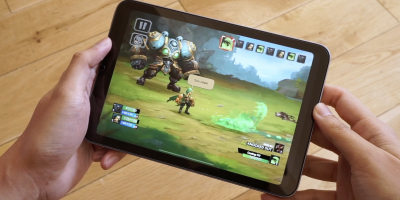
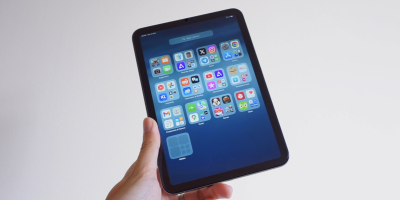



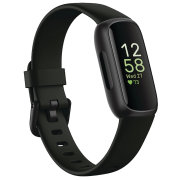
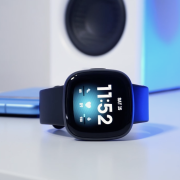
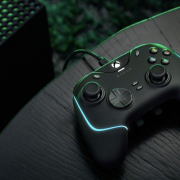

I’m guessing the adreno 205 wasn’t exactly made for 1024×600 screens in mind.
Samsung doesnt have a 1.2ghz hummingbird.
They do. Look up “Samsung Infuse 4G specs”.
-Q
Also, my Epic 4G runs @ 1.3GHz, and used to be clocked at 1.2… So, the statement “Samsung’s Hummingbird processor clocked at 1.2GHz” is plenty true and has been true for a while.
they have 1.2ghz hummingbird in Infuse4G. You just shoved your stupidity.
My vibrant is overclocked to 1.6 ghz so take that. Either way stock clock for the infuse is 1.2 ghz!
Never argue anything Samsung related with Quentyn. It’s a losing battle.
Oh boy. This again?
-Q
Lol
The music is nice!
So what? This person obviously has nothing better to do then sit in a cave and run benchmark tests. For the common every day user, this is useless, meaningless, and pedantic.
It’s a thorough benchmarking of a brand-new device. Most thorough I’ve seen. Helps people compare equipment because, yes, performance is important to some people, particularly as they make purchasing decisions. Now, if Q had cut his toenails for four hours and counted, ranked and organized his cuttings … that would be useless, meaningless and pedantic.
Oh, okay then. Feel free to blindly buy whatever you’re told to without knowing anything about it. Safe to say that you probably had an original Droid, right? It did have commercials on tv.
Hmm… shallow and pedantic.
http://www.youtube.com/watch?v=gPWQVGBVXKI
Felt like I was in an elevator….. with a Flyer. =p
I can’t argue with his benchmarks, but my subjective observation so far is that the HTC Flyer (obviously optimized for Android 2.3) is every bit as responsive and snappy as my iPad, HP Slate 500 and Xoom are/were. Browser performance is the best I’ve seen in a tablet short of Safari. Every time you expand a window the text perfectly reformats to fit the screen – thus making it as big or small as you like. Microsoft Exchange integration is much better than the iPad, and has little tweaks that are welcome additions (eg – an animated weather widget in the calendar view, etc.). Benchmarks can only tell you so much – user experience dictates the quality, and the HTC is the best competitor to an iPad out there. Remember, Apple proved that software optimization buries pure gHZ anytime (ala iPad 1), and I think HTC is really on to something here. When I bought my Flyer at Best Buy, every person looking at tablets kept coming back to the HTC display and marvelled how well it was built, but more importantly how responsive it was.
Are you kidding. Your just another fool tossing fud around to make you feel better about a crappy purchase.
There is now an update for the flyer – I assume this was done with the older version and the new version says that it is meant to improve performance more…
I tried one and the performance is great – the benchmarks are numbers. Until we get a proper benchmarking app that measures hardware performance on its own there is not much point – they are for information and should not stop or force purchases.
you also do not tell or show us what is running at the same time whilst performing these benchmarks – how often did it check email, tweets, facebook, weather, news, stocks etc etc. some benchmarks do better with more free memory, some do better when in airplane mode….